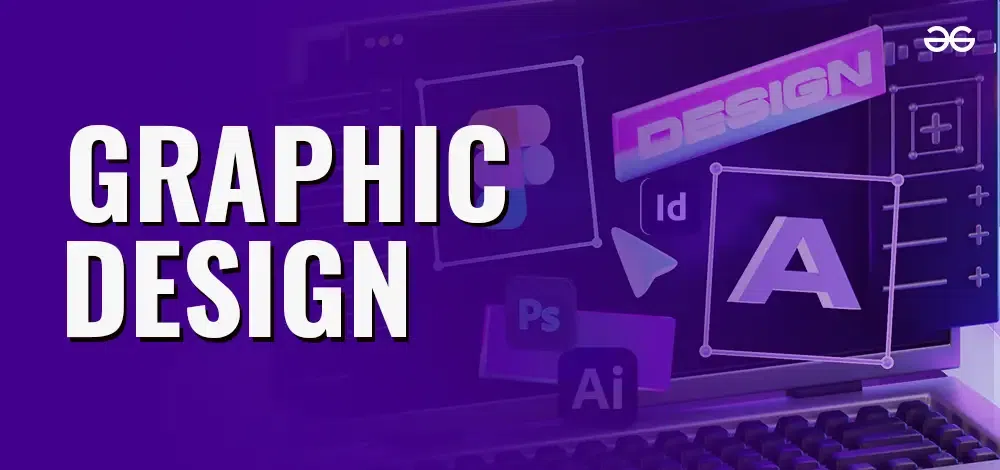Wondering how long does it take to be a graphic designer? You’re not alone! The world of graphic design is exciting, dynamic and more accessible than ever before. Whether you are a creative soul looking to turn your artistic skills into a professional career or someone seeking a flexible, innovative career path, graphic design offers incredible opportunities.
The burning question: How quickly can you become a graphic designer? The answer might surprise you with dedicated effort, you can launch your graphic design career in just 6 to 18 months.
Why Graphic Design is an Amazing Career Choice
Graphic design is everywhere. It’s in the ads you see, the websites you visit, and the products you buy. It’s a career that combines creativity with problem solving, making it one of the most exciting paths for artistic minds.
Industry Insights
According to Bureau of Labor Statistics:
- Total Jobs in 2021: 225,800
- Projected Job Growth: 3% (2020-2030)
- Median Annual Salary: $52,110
- Entry-Level Salary: $31,720
- Top 10% Earners: Up to $90,000+
Detailed Roadmap: From Beginner to Professional Designer
Here’s a clear guide to help you understand the process. Follow these steps, and you will be ready to start your career.
Do You Need a College Degree?
No, you don’t need a degree to be a graphic designer. Many successful designers are self-taught. Companies care more about your portfolio and skills than your education.
If you are disciplined and willing to put in the work, you can succeed without formal schooling.
1. Foundational Skill Development (3-6 Months)
Essential Design Software
If Adobe feels intimidating, try Canva. It’s simpler but still powerful for beginners. Dedicate a few hours each day to practice. Use free tutorials on YouTube or invest in affordable courses on Udemy or Skillshare.
Learning Resources:
- Udemy Design Courses
- Skillshare Tutorials
- YouTube Design Channels
- Free Online Tutorials
Key Learning Strategies
- Dedicate 2-3 hours daily
- Practice consistently
- Complete online projects
- Join design communities
Also learn: Art of Typography: Elevating Your Designs | Types and Anatomy
2. Design Principles Mastery (2-3 Months)
Knowing how to use software isn’t enough. Great design requires an understanding of core principles. When you apply these principles, your designs will look polished and professional.
Core Design Principles
- Balance
- Contrast
- Alignment
- Proximity
- Repetition
- Visual Hierarchy
Learn them here: Psychology of Shapes in Design with Theories and Principles
Advanced Learning Platforms:
- Coursera Design Fundamentals
- LinkedIn Learning Design Courses
- Design Blogs and Podcasts
3. Portfolio Development (6-12 Months)
A portfolio is your resume. It shows clients or employers what you can do. Start creating pieces as soon as you can. Even if they are just for practice, they are valuable. Over time, you will develop a collection of diverse work.
Portfolio Building Strategies
- Create mock project designs
- Design logos for fictional brands
- Redesign existing websites
- Develop packaging concepts
- Showcase diverse design styles
Portfolio Sharing Platforms:
4. Practical Experience Acquisition (6-24 Months)
Gaining Real-World Experience
This is where your skills turn into a career. You’ll need to gain practical experience to grow. Start small. Offer your services to local businesses. Freelance on platforms like Upwork or Fiverr. Join design challenges online to sharpen your creativity. You could also intern with a design agency. Internships offer hands-on training and help you network with professionals.
5. Continuous Professional Development
Graphic design is always changing. Trends come and go, and new tools appear every year. To stay competitive, you’ll need to keep learning.
Follow design influencers on social media. Watch webinars or attend workshops. Try your hand at new skills like motion graphics or user interface (UI) design.
The more you learn, the more valuable you will be.
Networking and Growth
- AIGA Design Organization
- Design Conferences
- Online Forums
- LinkedIn Professional Groups
- Design Workshops and Webinars
Overcoming Common Challenges
Break down your learning into small steps. Focus on one skill at a time. Join online communities for advice and support. Websites like Reddit or forums for designers can be a great help.
Remember, practice makes progress. Every professional designer started as a beginner.
Potential Roadblocks
- Software complexity
- Building confidence
- Finding initial clients
- Developing unique style
Proven Solutions
- Daily consistent practice
- Online community support
- Low cost lerning resources
- Continuous portfolio improvement
Financial Considerations
Potential Income Streams
- Freelance Design
- Full-Time Employment
- Contract Work
- Passive Income (Templates, Design Assets)
Salary Progression
- Beginner: $31,720 – $40,000
- Mid-Level: $40,000 – $65,000
- Senior Designer: $65,000 – $90,000
- Design Directors: $90,000+
Please not that, these are given according to USA market, if you are from another country, prices can be lower or higher.
Recommended Learning Path
- A Guide to Becoming a Graphic Designer | Skills, Education, and Career (Clear Basics)
- Master Design Software (3-6 months)
- Learn Design Principles (2-3 months)
- Build Portfolio (6-12 months)
- Gain Practical Experience (6-24 months)
- Network and Develop Professionally (Ongoing)
Do I need a college degree?
No! Many successful designers are self-taught.
What’s the fastest learning path?
Combine online courses, consistent practice, portfolio building, and community engagement.
How can I stand out?
Develop a unique style, stay updated with design trends, and continuously learn.
Your Design Journey Starts Now
Becoming a graphic designer is more accessible than ever. With dedication, the right resources, and passion, you can transform your creative dreams into a professional reality in just 6-18 months.
“Design isn’t just art; it’s the language of ideas. Master it, and you won’t just create visuals – you’ll shape perspectives.”
— Ali Raza
Key Takeaways:
- Master design software
- Learn core design principles
- Build a strong, diverse portfolio
- Gain practical experience
- Network continuously
- Never stop learning and growing
Your design career is waiting. Are you ready to create something amazing?
Disclaimer: Individual learning timelines may vary based on personal dedication and learning pace.
Recommended Next Steps
- Explore Adobe Creative Cloud Resources
- Join design communities
- Start your first design project today





